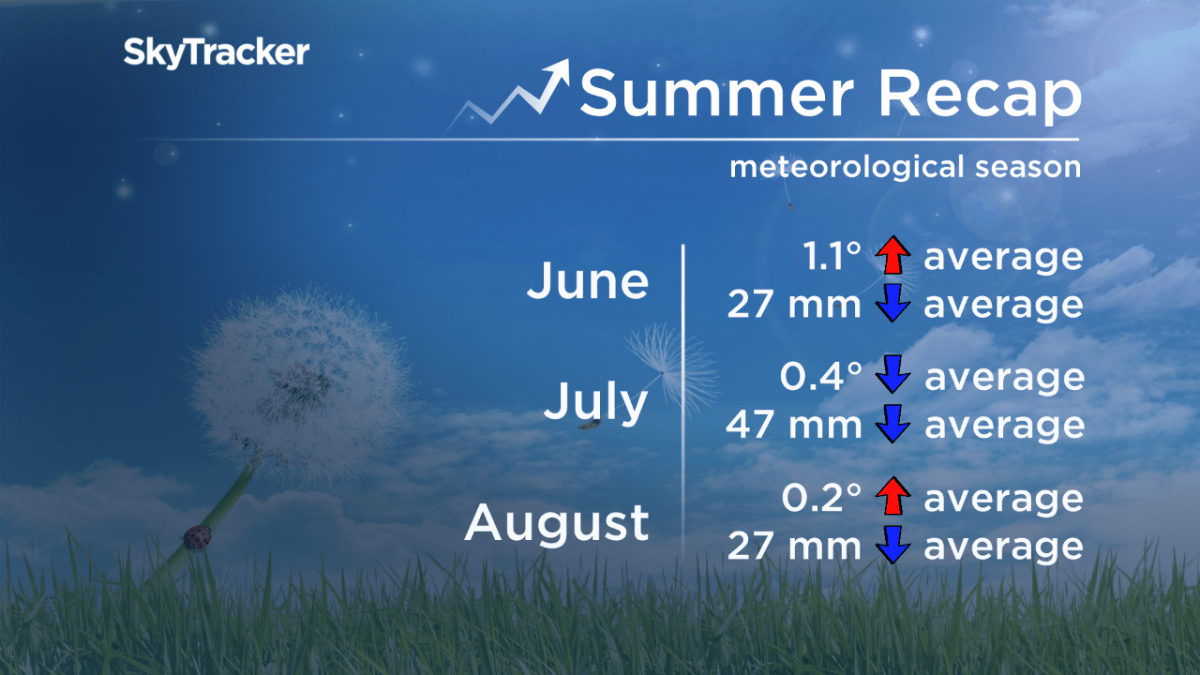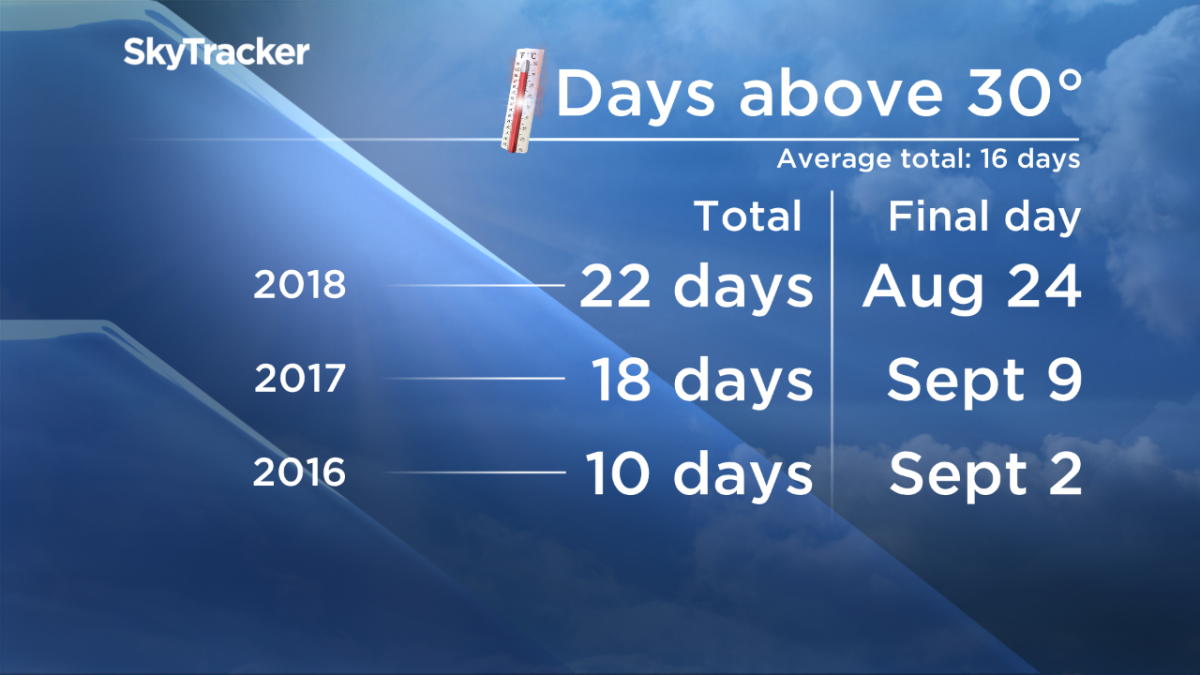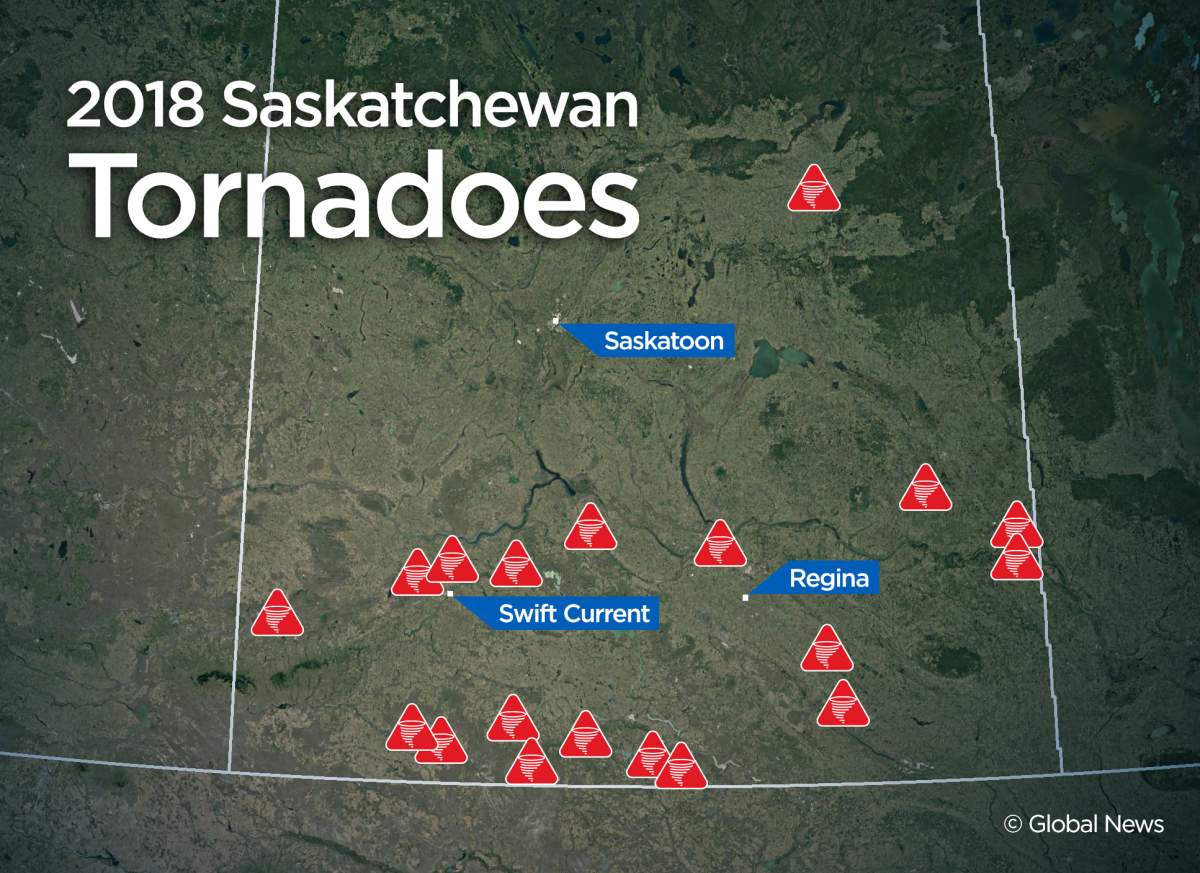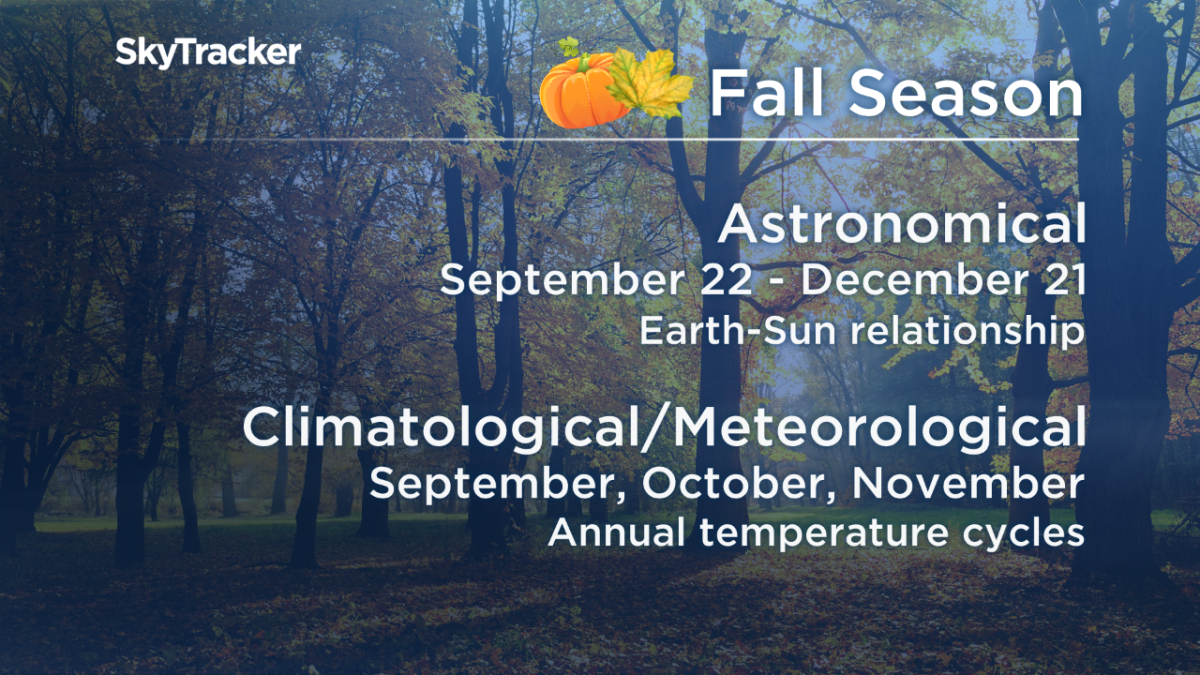The 2018 summer season in Regina was warm and dry, continuing a drought that has been ongoing for 17 months.

From the start of June to the end of August, 81 millimetres of rain has fallen in Regina, which is only 45 per cent of the normal amount.
Temperatures have been close to seasonal, with June and August being slightly warmer.
The mercury has hit 30 degrees or higher 19 times during the summer months and another three times before that in May. That brings the total to 22 times this year, which is 6 above the normal.
On Aug. 11 the city hit 41.3 degrees, breaking the all time August record of 40.6 degrees set on Aug. 6, 1949.

Get daily National news
The hottest temperature ever recorded in Regina was 43.3 degrees on July 5, 1937.
It was an active summer storm season across Saskatchewan with 19 tornadoes confirmed by Environment Canada, and three possible touchdowns.
Each year, about 18 tornadoes are confirmed in the province, though the number of unreported tornadoes — as a result of not being seen — is likely higher.
Tornado season across the Prairies runs from April through to September.
The meteorological summer season is observed as the three hottest months of the year; June, July and August.
The fall equinox at 7:54 p.m. on Sept. 22, marking the first day of the astronomical fall season.
For observation and forecasting purposes, meteorologists and climatologists observe different season groupings based on the annual temperature cycle.
To stay updated with radar and weather alerts in your area, download the Global News Skytracker weather app for iPhone, iPad or Android.












Comments